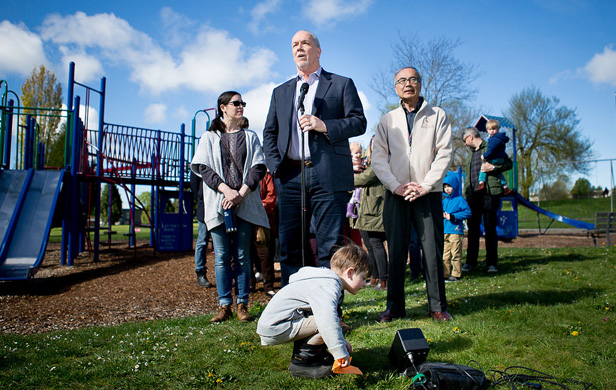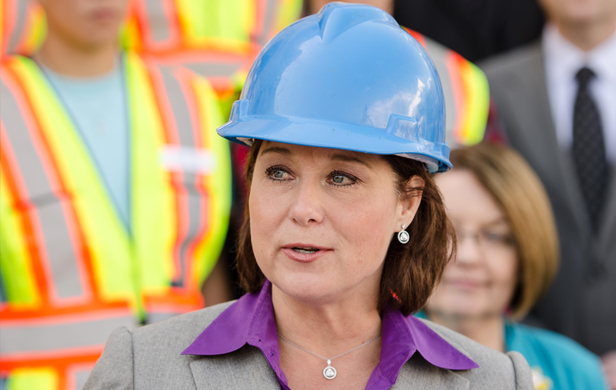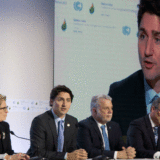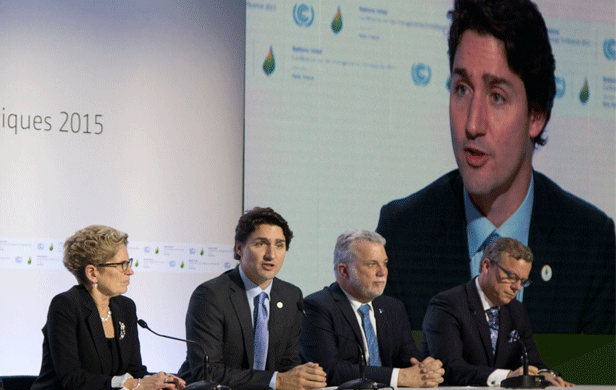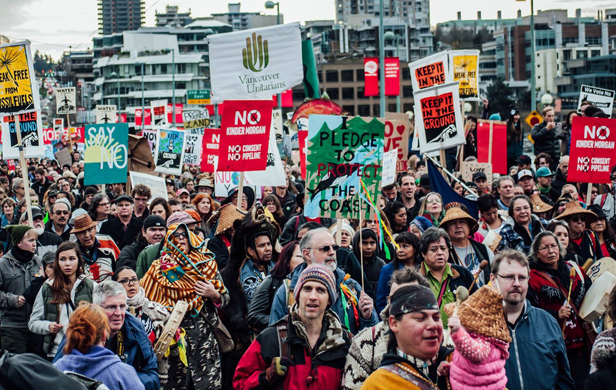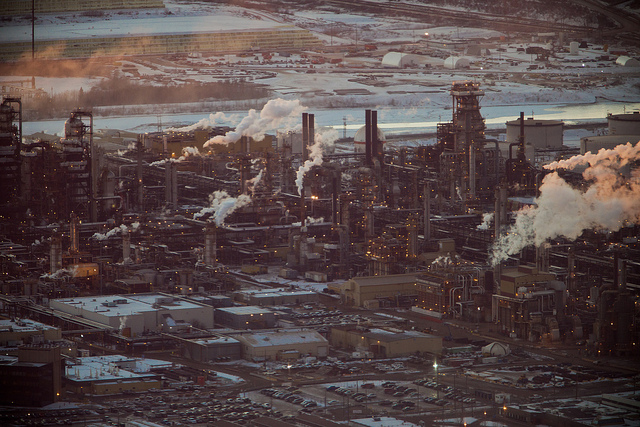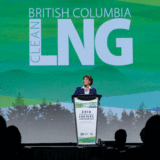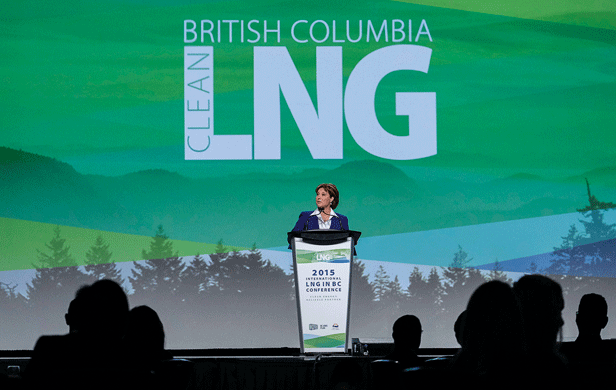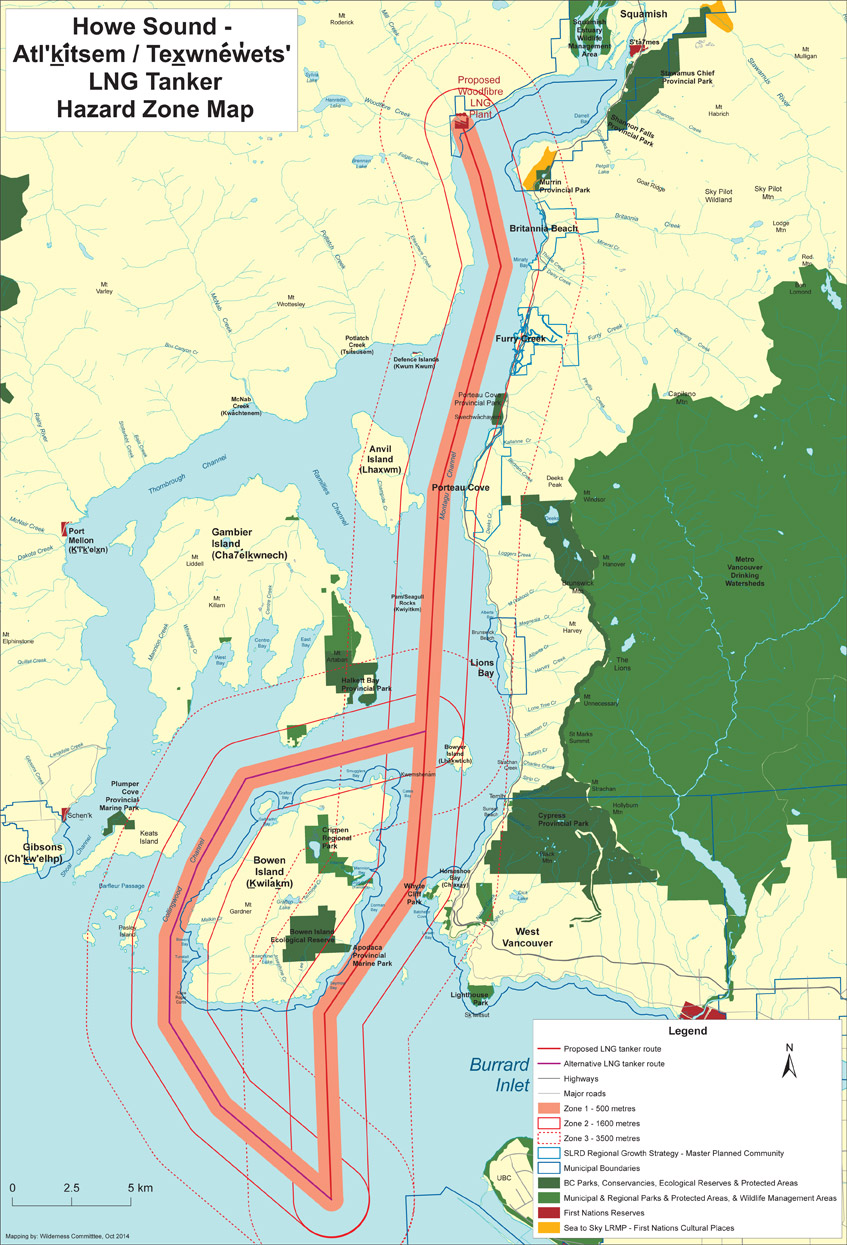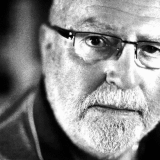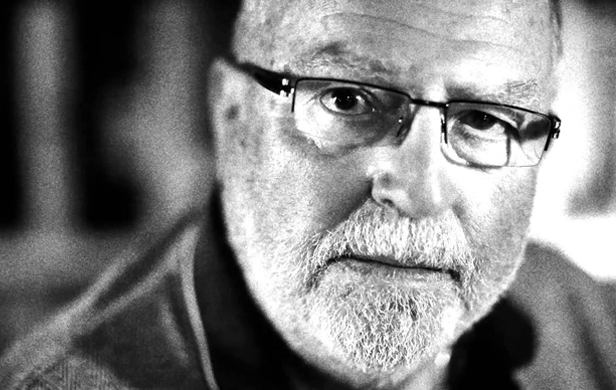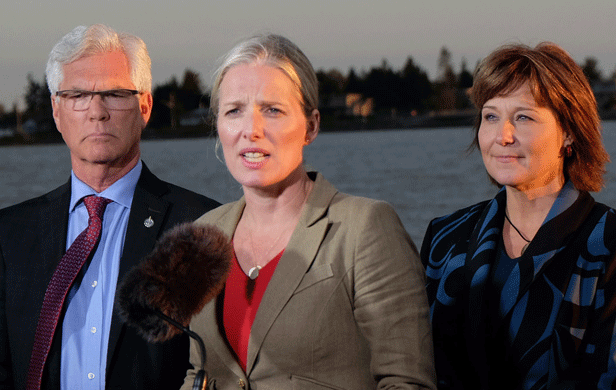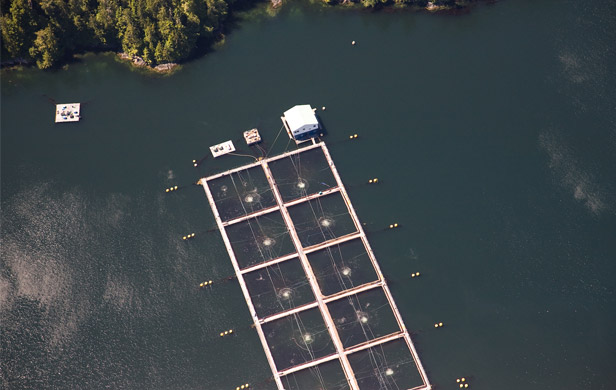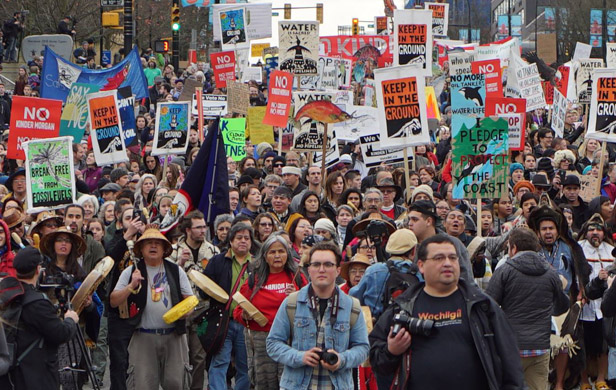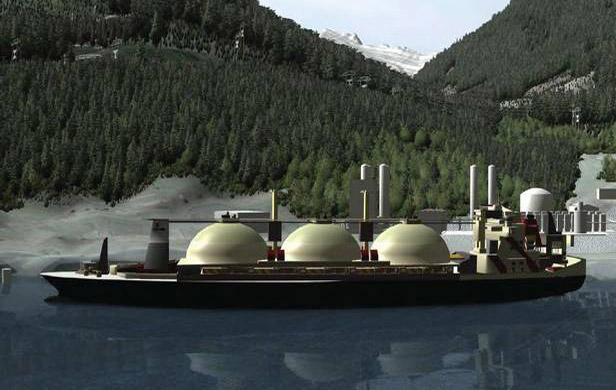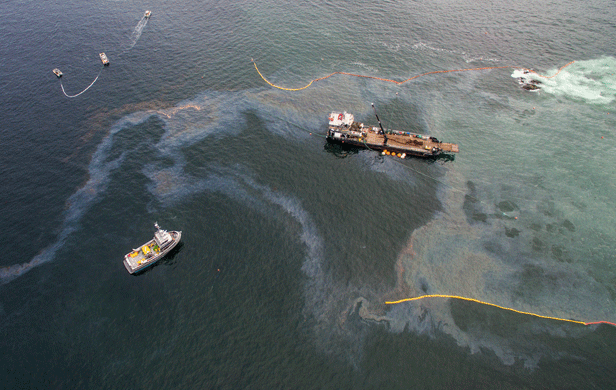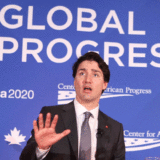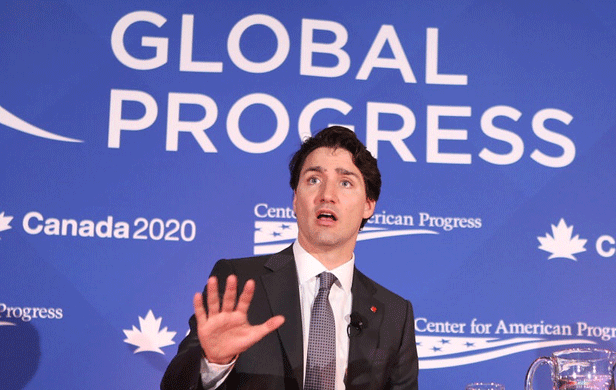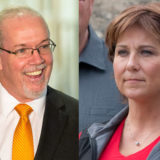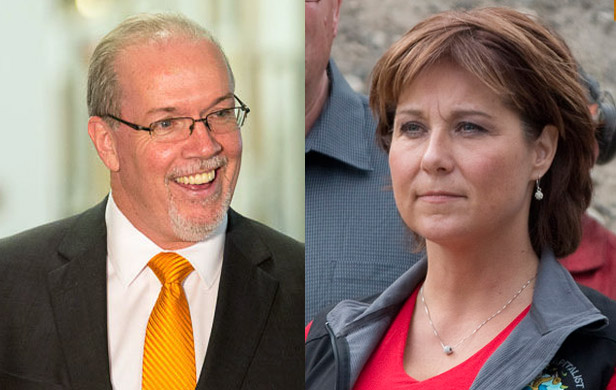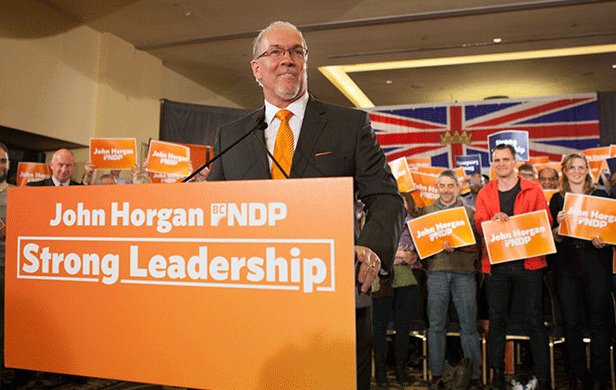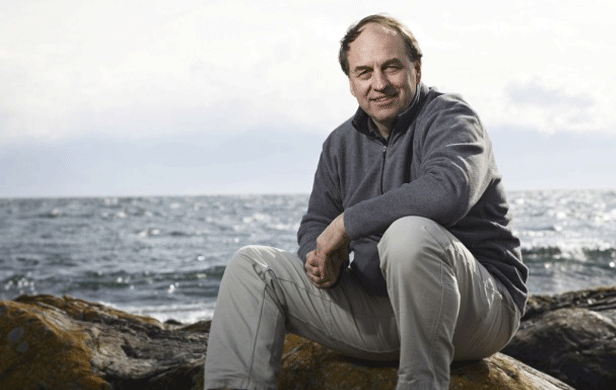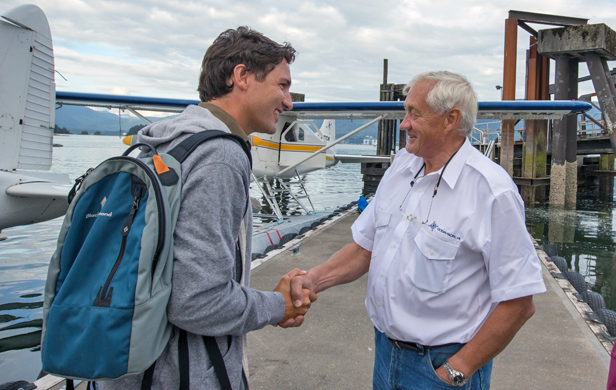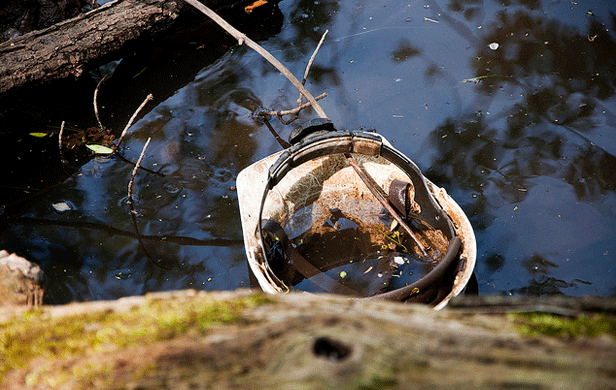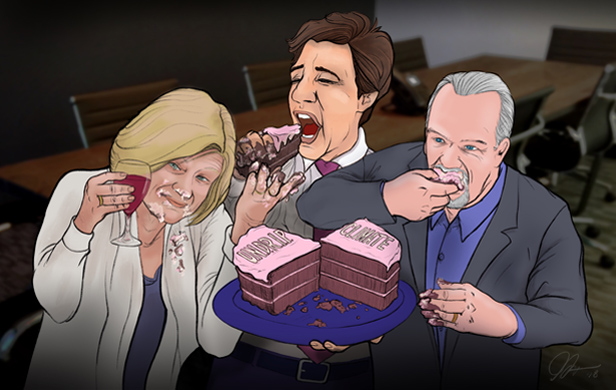
Canada can fight climate change and build more climate-ravaging pipelines.
First Nations’ rights should be respected – just not at the expense of these pipelines, dams and other major projects they oppose. Got it?
It’s hard to fathom, but these are the positions of our provincial and federal leaders. They want to have their cake and eat it too.
All sunshine and broken promises
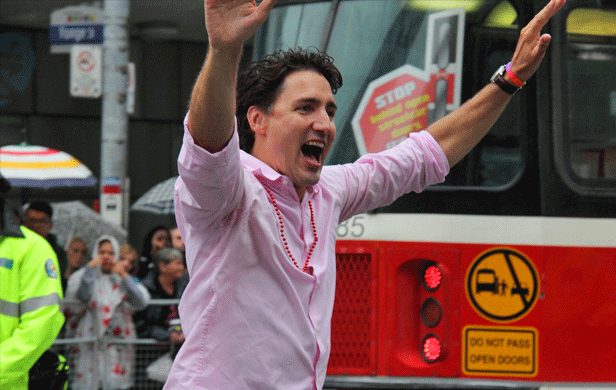
If the first step in dealing with a problem is admitting you have one, then Canada has made some progress on the environment and Indigenous rights – but on that score alone.
We traded climate change-denying, First Nations-bashing Prime Minister Stephen Harper for the smooth-talking, Sunny Ways Justin Trudeau. He made bold declarations about fighting climate change on the campaign trail, then in Paris, earning him accolades from around the world. He installed Canada’s first ever Aboriginal Justice Minister, Jody Wilson-Raybould, promised a “new relationship” with First Nations, and vowed to adopt the United Nations Declaration on the Rights of Indigenous People (UNDRIP).
But many of his actions have not lived up to the words. The hypocrisy is on full display for everyone to behold. For instance, he recently told The National Observer that tripling Kinder Morgan’s dilbit pipeline capacity “is an unavoidable element in a national climate plan.” Huh?
Trudeau explained his twisted logic to CBC radio’s Gregor Craigie:
[quote]First of all, we need to have a world-class oceans protection plan in place, which is why we put over $1 billion in the biggest investment in protecting the B.C. coast that there’s ever been.[/quote]
Let’s pause there a moment. Wouldn’t not adding 340 new oil tankers a year to the BC coast be an even better way to protect it? Justin continued:
[quote]Second, we have to have an ambitious plan to fight carbon emissions, to reduce carbon emissions, right across the country, which we’ve brought in with the pan-Canadian framework…And third, we need to make sure that we are getting our resources to market overseas, safely and securely.
The only way we can get any of those things is if we do all three of those things together. That’s the plan that we put in place, and that’s what we’re going to move forward with.[/quote]
Justin has tried to clarify this dizzying argument by saying that “in order to get the national climate change plan — to get Alberta to be part of it, and we need Alberta to be part of it — we agreed to twin an existing pipeline in order to get to work.” So, in order to save the climate, he cut a deal that will only damage it more. I’m sure to him, this all makes perfect sense.
The problem is not only does Justin’s pipeline program undermine his climate promises, it breaks his commitments to First Nations, many of whom vehemently oppose this planned incursion into their unceded territories.
The latest to disappoint First Nations
On the provincial stage, in recent years, both Alberta and BC have also turfed long-running right-wing governments – in their case for the NDP (and BC Greens). In BC, John Horgan campaigned on clean energy jobs and a vow to fight Kinder Morgan, nebulous though it was. He also echoed Trudeau in supporting UNDRIP, and has since doubled down on his support for First Nations and the environment in his recent throne speech.
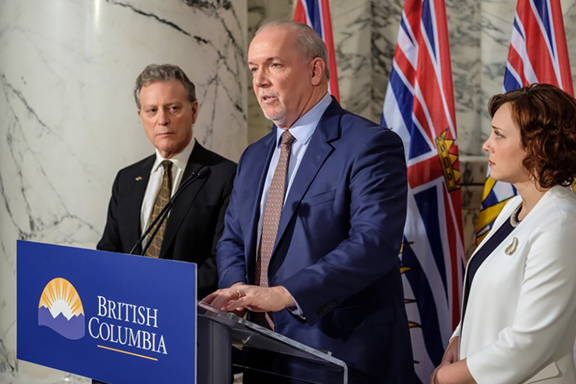
But where the rubber meets the road, it’s been a different story.
In announcing his controversial, factually-challenged decision to continue with Site C Dam, Horgan offered, “I’m not the first leader to stand before you and disappoint Indigenous people.” Aside from being one of the great understatements post-contact, it showed how weak his resolve really was. He might as well have said to First Nations, “I have your back…as long as it costs me nothing.”
The Horgan cabinet ministers most directly connected to the Site C decision had essentially vowed on the campaign trail to pull the plug on the project. I say “essentially” because most left themselves a millimetre of wiggle room for insurance. Lana Popham, now agriculture minister, told a Victoria crowd, “In my view, we’re nine seats away from being able to stop Site C.”
Michelle Mungall, now minister of energy and mines, declared, “…if we’re government, then our plan is to go through the B.C. Utilities Commission and we will work to end Site C…Our desire is to stop the Site C dam.”
George Heyman, now environment minister, told Treaty 8 First Nations and citizens at the Paddle for the Peace, “The dam project is wrong on every count because of its negative impact on agriculture, the environment, First Nations, clean energy commitments, economics, and the promise of jobs”.
Is it any wonder so many First Nations and British Columbians feel betrayed by these very same people’s decision to carry on with Site C?
Alberta, the oil deep state
On the other side of the Rockies, the bar was admittedly much lower, even for a new NDP government. First Nations have never really factored into provincial decision-making there and few expected the NDP to shut down the bitumen sands. But Notley did run as a fresh face for Alberta politics, promising to tackle her province’s unfair oil and gas royalties. She even brought in a climate plan that included a provincial carbon tax and a promise to phase out coal-fired electricity by 2030.
In every meaningful way though, Notley has stayed the course of her Conservative predecessors. The royalty hike was soon kiboshed. Her provincial carbon tax is too low to accomplish anything and she’ll only buy into a bigger national tax if she gets her pipelines. Pro-industry voices have come to her defence, arguing it’s still technically possible to meet Canada’s climate commitments while adding new pipelines. Can we at least agree they don’t help?
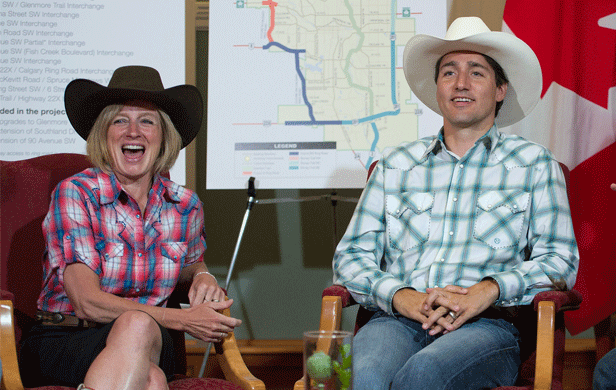
So committed to the industry is Notley that she’s prepared to start a trade war over it, as her childish antics have shown of late.
If we take their good intentions on the campaign trail at face value, how do these leaders get sucked into the status quo once elected? Former Alberta Liberal Opposition Leader Kevin Taft offers a credible explanation in his recent book, Oil’s Deep State: How the petroleum industry undermines democracy and stops action on global warming.
An “oil deep state”, says Taft, is what happens to jurisdictions around the world once they discover oil (as opposed to a “Petrostate”, which is “conceived in petroleum”). If governments don’t take serious steps early on to keep petrodollars out of their politics and ensure that the lion’s share of the benefits flow into public coffers, as Norway has successfully done, then it’s exceedingly difficult to hold on to one’s democracy. Industry leverages all that money back at controlling the very governments that are supposed to regulate them.
Albertans get 4% of oil wealth vs. 80% for Norwegians
This unholy relationship between Big Oil and our governments doesn’t just impact our environment, health and First Nations’ rights – it means a raw deal for taxpayers, as Mitchell Anderson lays out in a recent essay in The Tyee. In 2015/16, he notes, the Notley Government “collected a mere $1.5 billion on 942 million barrels of bitumen production, worth only $38 billion due to collapsed oil prices. This resource rent works out to less than four per cent return to Alberta taxpayers. Compare that to the days of former premier Peter Lougheed when Alberta captured 28 per cent of resource revenue, or even 15 per cent even in the days of Ralph Klein. Norway taxes oil company profits at close to 80 per cent.”
So Notley had good reason to attempt a royalty re-jig – too bad she lacked the resolve to see it through. This helps explain her recent tantrums and her government’s desperation to expand the industry – though at a 4% share of depressed oil prices, they’d have to build an awful lot of new pipelines to claw their way out of their fiscal hole.
By the way, those who buy into Notley and Trudeau’s logic that without oil and gas revenues, we can’t afford to pay for our environmental programs need to take a hard look at these revenue numbers (BC’s are even more pathetic) and then promptly knock it off.
Under the influence
I say the above to provide context to our problem, not to absolve our leaders for the bad choices they keep making. Horgan’s predecessor Christy Clark let the oil industry write her climate plan, while she clung to the promise of a fracking-powered LNG industry. Sadly, inexplicably, Horgan is now trying to keep her LNG pipe dream alive. Meanwhile, the Trudeau government welcomed Donald Trump’s election as they saw it would help resurrect the embattled Keystone XL Pipeline.
Our federal and provincial governments may well be “captured” by this industry – but one way to ensure they remain captured is for new leaders to keep taking the same campaign donations and meetings as their predecessors did. According to Huffington Post Canada, by late 2016, the Trudeau Government had already met with these big oil and gas companies or lobby groups the following number of times:
- Enbridge: 86 times
- Canadian Association of Petroleum Producers: 70 times
- The Canadian Energy Pipeline Association: 57 times
- TransCanada Pipelines: 45 times
- Imperial Oil: 57 times
- Kinder Morgan 35 times
That’s 350 meetings — nearly one per day — with just six of the top players in the Canadian oil and gas industry in Trudeau’s first year in office. Perhaps this explains why he wound up sticking with the very same Harper-era climate targets he once mocked for being too weak.
How do First Nations, environmental defenders and everyday citizens stand a chance against this kind of influence?
Horgan, the Enigma
On the surface, John Horgan is in many ways different from Christy Clark and at odds with Trudeau and Notley. His government has brought in a full grizzly trophy hunting ban, turned down the proposed Ajax mine, and it’s taking meetings with First Nations and carrying out investigations into the salmon farming industry. But, make no mistake, he too has much to answer for.
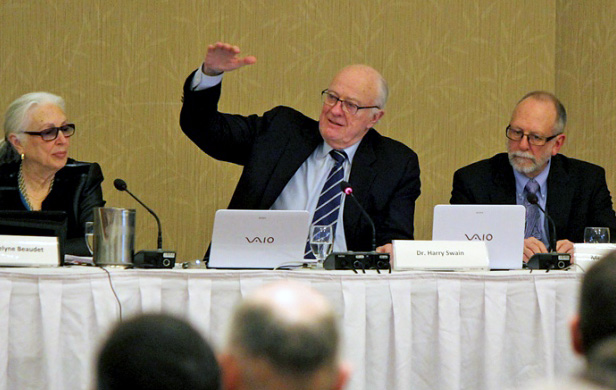
He had everything he needed to kill the aforementioned environmentally and economically disastrous Site C – a BC Utilities Commission report that was a slam dunk against the dam; the testimony of highly respected, independent experts like the head of the Joint Review Panel on the project, Dr. Harry Swain, and former BC Hydro CEO Marc Eliesen, tearing to shreds the economic argument for the dam and Horgan’s statement in defence of proceeding.
Horgan had made commitments to First Nations that are simply impossible to keep while continuing to break treaty promises and violate their rights in such a significant way – even if he’s real “conflicted” about it.
He has talked tough on Kinder Morgan, particularly of late, but his true resolve remains to be seen. He took the bizarre position of backing the project in provincial court (against the Squamish First Nation), while opposing it in federal court. And he’s still backing the economically unviable, climate and ecology-destroying LNG industry.
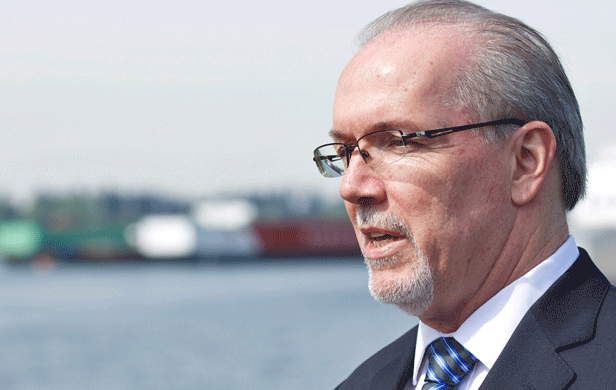
It remains to be seen where the Horgan NDP goes from here. Their hypocrisy on key issues has already frayed relations with many of their longtime supporters and their legislative partners, the BC Greens. But much of their legacy has yet to be written. Will they show they respect the environment and First Nations’ title and rights by giving their all to oppose Kinder Morgan? Will they refuse to renew unsustainable open net pen salmon farming tenures – many of which come due this June? Will they drop this LNG business once and for all? Will they reverse their disastrous position on Site C? (They still very much can and should).
Or will they just be a milder version of the Alberta NDP or federal Liberals?
These are tough political choices, no doubt. But it’s the tough choices that reveal true character and leadership. It’s actions, not promises that count.
At least be honest
As I argued in a critique of Justin long before he was elected prime minister, it’s his hypocrisy that’s the hardest to stomach. At least with Stephen Harper, Ralph Klein, Christy Clark and Gordon Campbell, we knew what we were getting. They may not have been honest about a lot of things, but they made no bones about their policies on energy, the environment, and Indigenous Rights. They didn’t care and they told you, straight up.
It’s somehow worse being lied to, and then, to add insult to injury, getting lectured for having a problem about it. Justin clearly cares about his brand. Unlike Harper, he desperately wants to be liked – and when people turn on him, even for perfectly good reasons, he doesn’t take it well.
Witness the irony of Justin losing it on a pipeline opponent at a town hall meeting in Nanaimo: “If you’re not going to respect the people in this room, then you need to leave.” What’s worse – not respecting the decorum of a public meeting or not respecting an entire province, the rights of Indigenous people and the environment? If we’re talking about respect, who in this situation deserves the lecture?
Sure as God made little green apples, British Columbians and First Nations will keep fighting Trudeau and Notley on Kinder Morgan and Horgan on Site C, LNG, and fish farms.
These defenders of the environment and Indigenous rights have proven determined to stick to their convictions, even when doing so is deeply inconvenient. Even when it means being bullied, publicly insulted, and threatened with financial ruin or jail. They know Trudeau and Notley’s “National Interest” argument doesn’t hold water; that even the threat of pitting our police officers and military soldiers against decent citizens is a gross abuse of power that makes a mockery of our prime minister’s commitment to obtaining “social licence” for projects; that science and the law tell us we must take our environment and Indigenous rights seriously, and that our leaders are wrong not to – even worse, to pretend to and then break their word.
Of course politicians lie. A cynic might say it’s even quaint or naive to complain about it. But a lot is riding on just how pissed off citizens get about being lied to – and what they are prepared to do about it.
After the backlash from his Site C decision, Horgan can’t make another misstep, like faltering on Kinder Morgan, without losing critical votes to the Greens and dashing his chances of reelection. Justin’s 17 BC seats matter far more to his own future than do his four in Alberta, so declaring war on BC could prove a big mistake. Rachel can’t get reelected without getting her pipelines built, but, let’s face it, even with them, her days are numbered.
So they all had better enjoy their cake while they can.
At this rate, it won’t be long before the party’s over.



